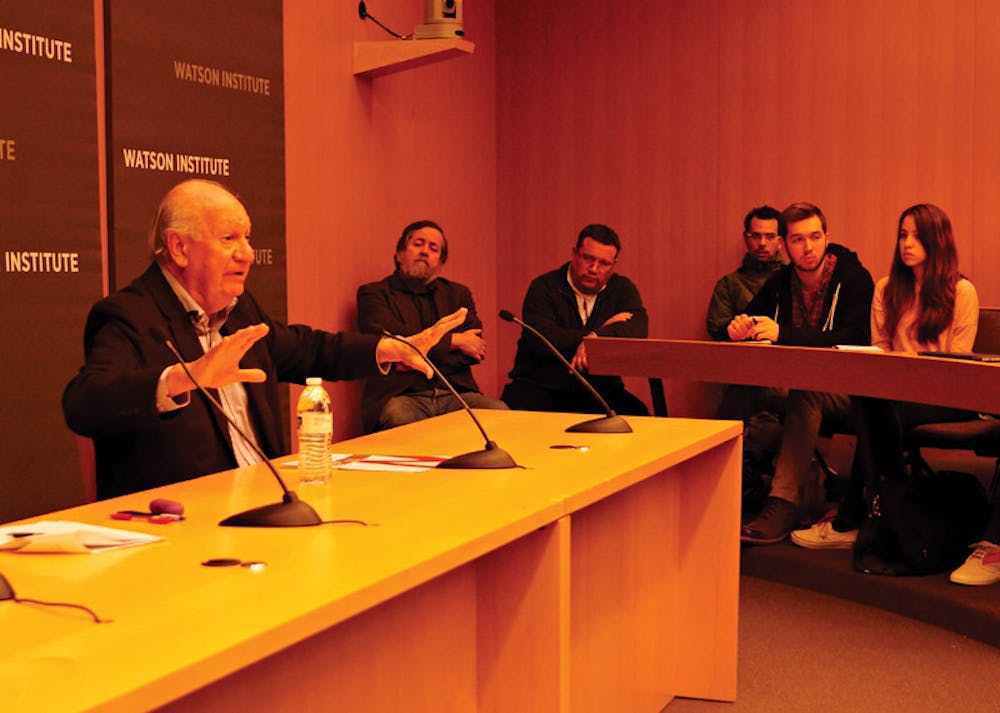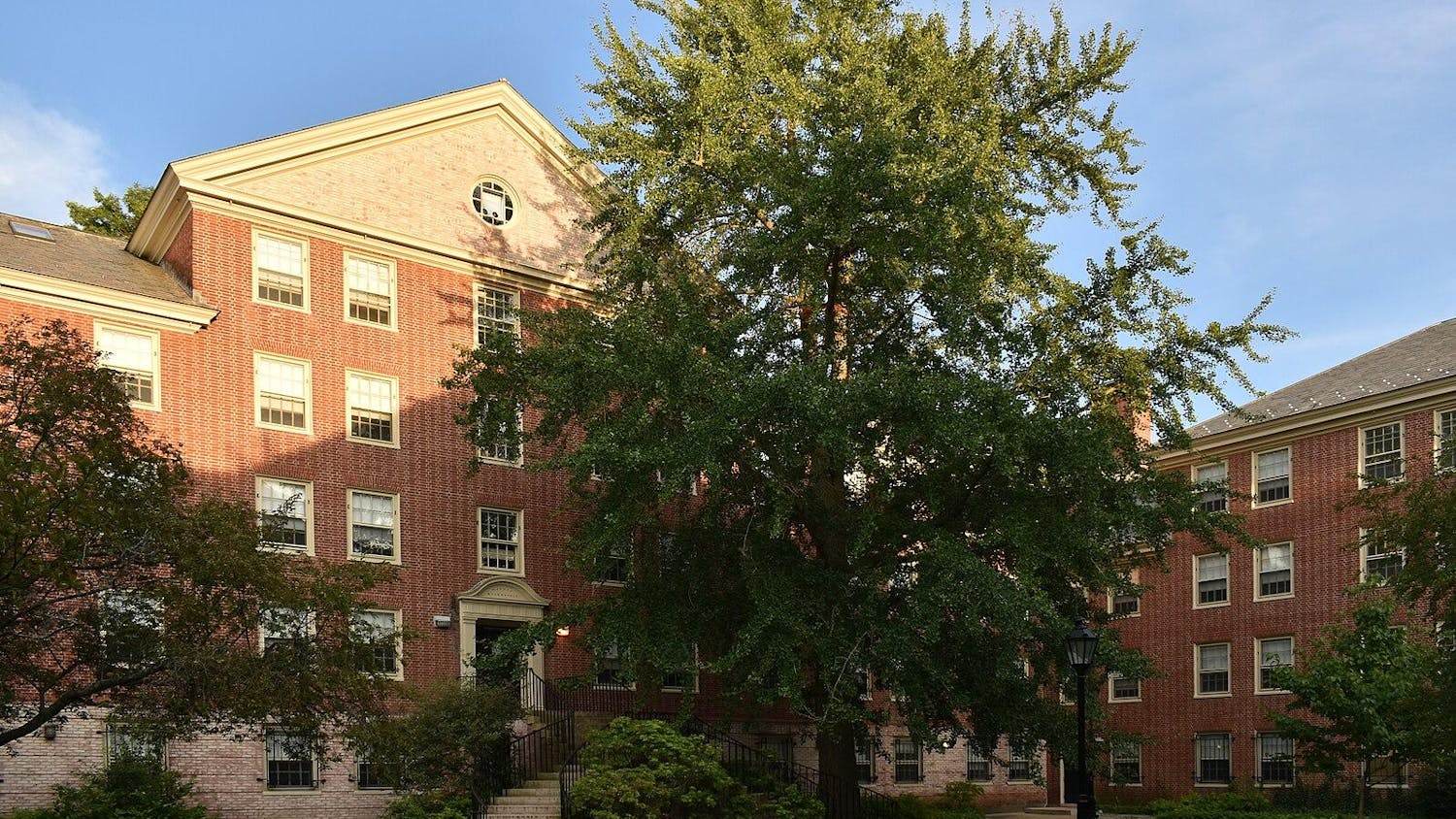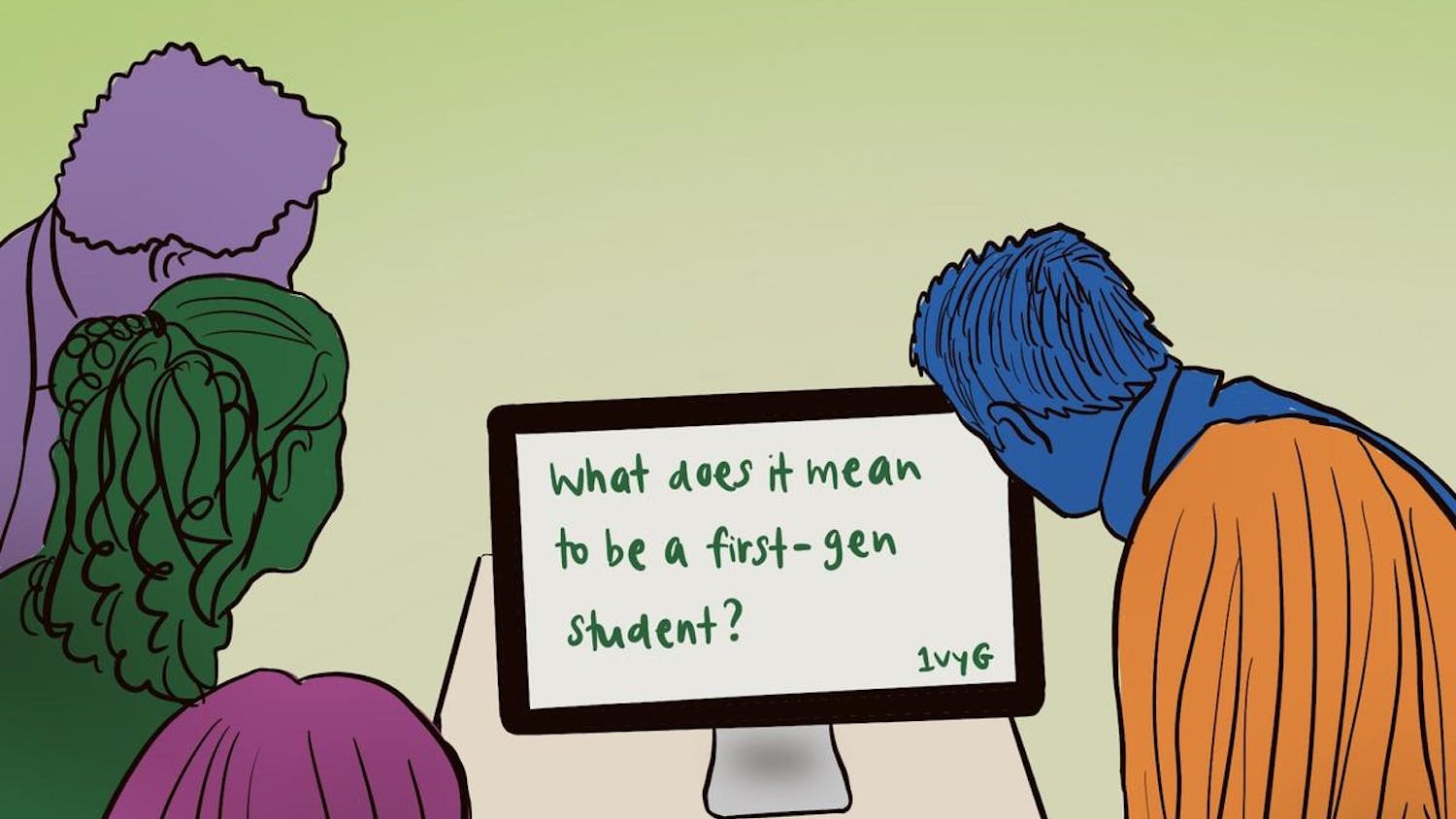“We are closing a political, economic and social cycle in Latin America, and therefore, we are about to begin a new way of looking at things,” said former Chilean President and Professor-at-Large Ricardo Lagos in a lecture Tuesday night entitled “Quo Vadis, Latin America? What Lies Ahead for the Region” at the Watson Institute for International Studies’ Joukowsky Forum.
“Many of the tools we learned from the past are not going to be as useful … because the region is different,” he said.
Lagos is known for his series of landmark free-trade agreements, contributions to health care and education legislation and efforts to confront the crimes of Augusto Pinochet’s military regime. Since leaving office, Lagos founded the Foundation for Democracy and Development — where he serves as president — acted as a special envoy on climate change for the United Nations from 2007 to 2010 and currently serves as vice chair of the Inter-American Dialogue, a Washington-based think tank.
Lagos opened the lecture by presenting his thesis: Latin America’s transition into a new political, social and economic cycle results from the impact of technological changes on political institutions and the establishment of what he deems a new world order.
Politically, though strong and accepted democratic processes exist in the region’s countries — evidenced by increased gender and racial integration — governments must do a better job of being more representative and protecting consumers from monopolistic powers, Lagos said.
Lagos said he believes technology historically has played a major role in political progress, citing the domino effect created by Johannes Gutenberg’s printing press, which he argued led to the rise of democracy in the West.
Referencing the power of the young generation to bring democratic change, Lagos said, “For the new generation, dictatorship is history. Therefore they expect much more of democracy.” He cited Twitter and Facebook as examples of ways to distribute information quickly and effectively, explaining that technology has the potential to generate awareness and change in political institutions.
But Lagos also warned that political change should be gradual. “Look at Egypt — the transition was too quick and therefore, the military returned in a coup.”
Lagos said that a converging growth rate and the lessons learned from the Great Recession place Latin America in a strong economic position moving forward.
“Because we have had a history of many financial crises, we have developed an improved financial system that was better able to better weather the most recent crisis,” Lagos said, adding that the importance of stronger government regulations has entered mainstream thinking post-2008.
Lagos argued that the region is on a trajectory toward a critical level of per capita gross domestic product. Once countries reach this critical point, government policies promoting equitable income distribution will be necessary to continue to improve quality of life in the region, he added.
Latin American countries should follow the advice of a recent report by the International Development Bank, highlighting the role of the state in industrial policy, he said. Countries should be “picking the winners” and supporting them, he said.
The decline in the ratio of Latin American to U.S. productivity since the 1970s, which has suffered a drop from 80 to 50 percent, is another important factor to consider when evaluating Latin American growth, Lagos said. “Many people would argue it is because of red tape, poor education, poor infrastructure (and) lack of private-sector competition.” Creating trade agreements and integrating better with international partners outside Latin America could also facilitate the discussion over drugs and immigration, he said.
At the end of the lecture, Lagos named a host of social issues to be addressed in the future: public education and the role of government subsidies, the transformation of health from a right to a guarantee, the importance of environmentally friendly planning and the political integration of minority cultures.
Circling back to his thesis, Lagos concluded with his perceptions of the “new world order.” Post-Cold War, there were ideas of a new order that now have been proven false given the rise of the Islamic State and annexation of Crimea, he said.
There is no world order today, Lagos added. “Where is the number-one today when it comes to national security?”

ADVERTISEMENT




